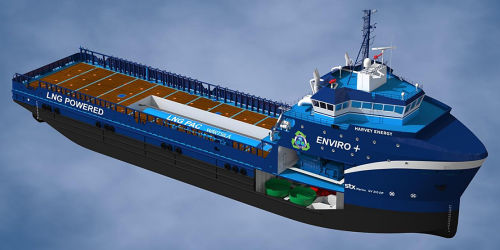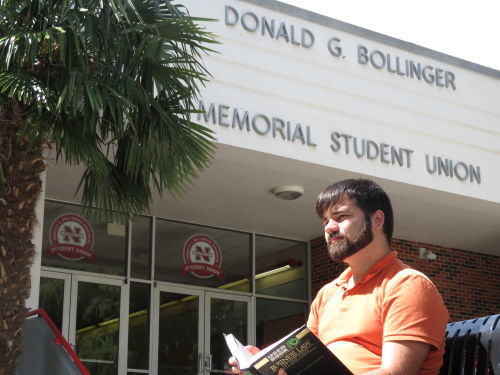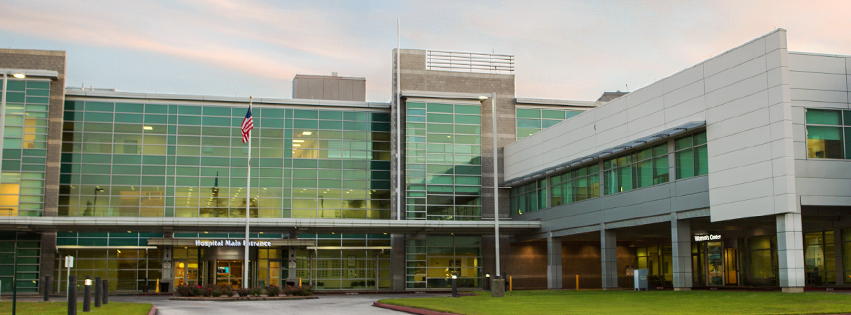Audit: State could be losing oil royalty money
September 25, 2013
Offshore pioneer makes Port Fourchon its ranch
September 25, 2013When Joe Verdin began university studies, his sights were undeniably set on a management degree.
But a new program created through a partnership between Nicholls State University and local marine firms that service the oil industry will bring him closer to his goal of working as a manager in the maritime sector, and make the degree he is earning more valuable in the long run.
“It gives me more of a base of understanding compared to a traditional management degree,” the 21-year-old senior said of the Nicholls School of Business Administration’s Maritime Management Concentration.
The program allows traditional students seeking degrees in management to acquire knowledge and skills that make them imminently qualified to take on higher level jobs in the maritime industry.
Classes offered in the concentration include admiralty law, shipping economics and accident prevention. In addition, students may qualify for summer internships with local and regional firms. The internships include two weeks spent at sea.
Bollinger Shipyards, Edison Chouest Offshore, Candy Fleet LLC, Galliano Marine Services, Havey Gulf International Marine, L&M Boatruc Rental, Marine Systems Inc., Otto Candies, Phelps Dunbar, SEACOR Marine, ARIES Marine and Montco Offshore are among the firms investing instructors and also dollars into the program.
“This program will offer Nicholls students a competitive advantage in an industry that they will likely be directly or indirectly involved in anyway,” said Robert Clemons, COO of SEACOR.
Ken Chadwick, head of the Department of Management, Marketing and Business Administration at Nicholls, explained the program last week to members of the South Central Industrial Association and their guests, focusing on the importance of using local resources to train local talent.
“In talking to SCIA, the main goal was to give additional exposure for the program, especially to a lot of individuals who had heard of it but didn’t know specifics,” Chadwick said. “We were able to make contacts with more companies who may be interested in joining us and joining these partnerships, as well as the College of Business as a whole.”
The program, which began this semester, has 29 traditional students pursuing the degree with the maritime concentration, Chadwick said. An additional 15 students, he said, are taking classes as part of a new certificate program that allows people to take one or more courses within the curriculum, for which they will receive a certificate. The courses are offered at night, enhancing the potential for participation by those who already hold down jobs.
Joe Orgeron, chief technology officer at Montco, who also teaches in the program, said the internship component is especially valuable.
“That actually gives them real world experience, to be able to understand,” Orgeron said. “If they do an internship at my company I get a ‘try it before you buy it.’ If they do well and they have seen my operation and we have got a mutual agreement, if the captains on the boat you were on took a liking to you, it helps break the ice. The class work, meanwhile, gives them an excellent exposure.”
The Nicholls program, industry leaders said, emerges at a time when the culture of the oilfield has changed, requiring an executive approach to management and problem-solving.
South Louisiana has been a pioneer in offshore oil equipment transport, and transport of vessels.
In the old days, industry sources note, it was a question of getting the job done no matter what it took. But an increasingly dense regulatory environment along with a move toward greater accountability for oil exploration companies means that marine companies contracting with them have greater responsibilities as well.
A crop of managers with an understanding of the regulations, who can work within a company to change its culture, can go a long way toward increasing that firm’s viability.
“It was 12 years ago that I started working in back into the family business and the industry has changed what they were doing,” Orgeron said. “We have behavior based safety and stop-work authority. We had a lot of old cowboys on the boats, with the mentality of getting the job done at all costs. That mentality is now being weeded out of the industry. A new culture requires a lot more accountability and you need a college educated business school graduate.
That’s especially valuable, Orgeron said, to smaller “boutique” marine operations that don’t have integrated systems yet.
That means more opportunity, he said, for graduates of programs like the one at Nicholls.
Chadwick said it is natural for such a program to be offered at Nicholls because the region has such a rich maritime history, and maritime workers and managers will and should come from the bayous of Terrebonne, Lafourche, St. Mary and other nearby parishes.
“We remain at the industry’s epicenter,” he said. “We have the biggest and best boat and service companies in the world in this area. They continue to innovate. And because of that so much boat-building goes on because of the skills and knowledge of our people. Companies trying to duplicate what we do in places with low cost labor can’t match the productivity. So this program matches a big part of the culture of this area.”
SCIA President Jane Arnette, who invited Chadwick to speak at last week’s luncheon, said the Nicholls program provides an example of how local industry and academia can work together for workforce development, in industries other than maritime as well as those whose companies ply the waters.
“We are using local talent, local capabilities,” Arnette said. “Specifically this is designed for one of our major clusters, oil and gas, and that is critical. We are developing centers of excellence, and this is the only center of excellence of that nature in Louisiana. Hopefully, we can develop something similar with petroleum.”
For Joe Verdin, the Nicholls maritime management program is providing important knowledge, even though his base was solid because he grew up in the industry.
He is doing his part to help industry and to help young people he knows seeking career opportunities by spreading the word.
“I have talked to plenty of people in conversation,” Verdin said. “And I give them positive information on the program.”
Nicholls State University student Joe Verdin is among a new breed of business administration majors. The 21-year-old senior is in the university’s maritime management concentration. The program allows traditional students seeking degrees in management to acquire the knowledge and skills that make them imminently qualified to take on higher level jobs in the maritime industry.












